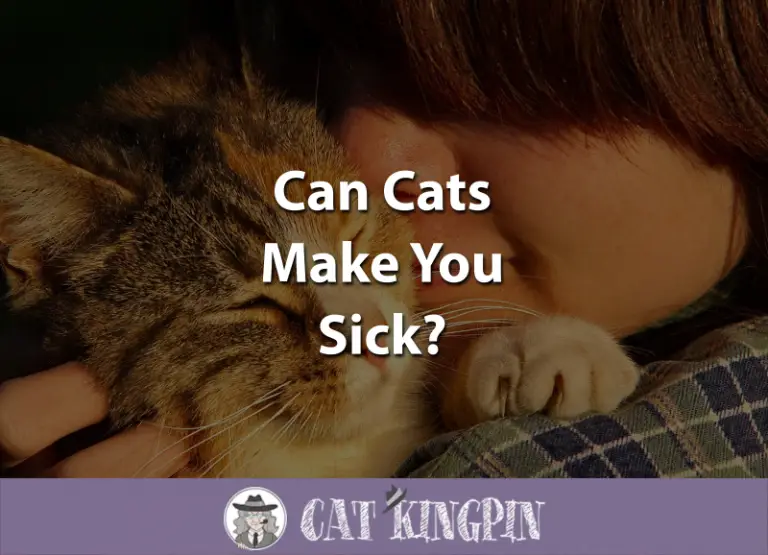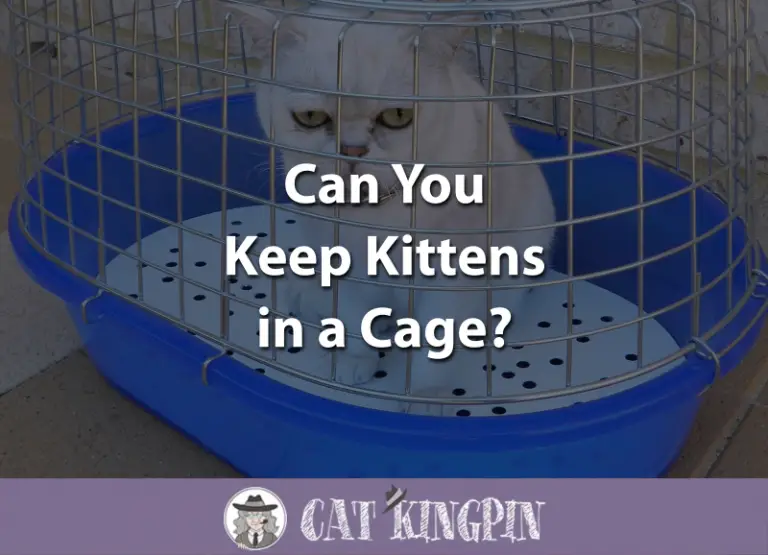Can Kittens Die From Fleas?
We all know that kittens are quite adventurous little pets. Most often, owner’s let their kittens explore the outdoors with or without a collar, interact with other kitten’s, and hunt the birds or mice they desire.
However, many of these outdoor activities can result in your kitten acquiring fleas. Fleas are one of the most common parasites that most owners will face.
Fleas are often carriers for multiple diseases that can significantly deteriorate the health of your pet.
I believe fleas are a very important issue to address, as misinformation about the severity of fleas to your kitten can be quite devastating to the health of the animal.
So In this article, we’ll cover the following:
- How Kittens May Contract Fleas
- Why Contraction of Fleas may Lead to Severe Health Problems
- How To Treat Fleas
How Kittens May Contract Fleas
Fleas are often seasonal insects. They thrive in warm and humid weather so your kitten is more likely to develop an infestation during summer and fall months.
There are many reasons that cats wander, one of which is simple curiosity. Before you let your kitten explore your backyard, realize that your kitten will very likely be a reservoir for flea larvae and eggs.
You see, flea eggs and larvae require a damp and dark environment to thrive.
So, your kittens’ dense fur would automatically become the perfect place for eggs and larvae to develop.
Furthermore, allowing a kitten to consume a dead mouse or bird they hunted will additionally increase their chance in contracting fleas.
But, the problem doesn’t stop there. If you allow your kittens to interact with other neighborhood cats then that may too result in your kitten acquiring flea-borne diseases.
For example, your kitten may get into a fight with another neighboring cat who may be infected with Bartonella (a bacteria spread by fleas).
This bacteria is blood-borne and thus cat fights, scratches, and interaction with other cats may lead to your kitten either acquiring the bacteria itself or acquiring the fleas carrying the bacteria.
Keep in mind that fleas aren’t bed bugs or lice. These are two different types of parasites.
How Contraction of Fleas may Lead to Severe Health Problems
Fleas may affect your kitten by introducing into their gastrointestinal tract. These parasites are tapeworms and may cause a range of symptoms’ such as abdominal pain, loss of appetite and anemia. These signs are usually most obvious during severe infestations.
Fleas may also be carriers of other diseases such as cat-scratch disease and Feline Rickettsia. Cat scratch disease is caused by a bacterium known as Bartonella. This bacterium may cause anemia, nosebleeds and high fevers.
Feline Rickettsia is another bacterium that is transmitted by fleas and may result in vomiting that can lead to pneumonia should it be left untreated. However, symptoms such as gangrene, fever, and a decrease in blood pressure may also occur over time.
In relation to common symptoms, anemia and fevers can be fatal to the kitten, especially kittens less than 8 weeks of age. It’s important to remember that very often it’s not the flea that will kill the kitten but rather the secondary symptoms and infections that may arise from your kitten hosting fleas.
A summary of fleas and their effect on your kitten can be seen in this interesting video:
How To Treat Fleas
If left untreated, diseases and pathogens carried by fleas may progress into secondary infections and clinical signs that can vary from severe anemia to bacterial infections. If your kitten contracts these, it will likely be fatal to your kitten.
One of the best methods for controlling fleas is to always regularly worm and treat your kittens for both fleas and ticks every few months. I personally use veterinary trusted brands such as Revolution and Advantage.
Generally, Revolution is a medication that requires a prescription. However, A link to Advantage can be found here.
Ideally, owners should not allow their kitten’s outdoors as many kittens will tend to hunt birds and rodents. Thus, this will increase their chances of acquiring parasites such as tapeworms and fleas.
If your kitten does, however, contract fleas at an age of less than 8 weeks, then you must contact your veterinarian in order to discuss the best method of treatment. Something you should be very careful about doing is giving your kitten a bath, as this can lead to hypothermia, which causes kittens to shake.
Over the counter flea treatment are not recommended for kittens under 8 weeks of age and may further damage their health.
If your kitten is over 8 weeks of age and has acquired fleas then you will need to:
- Treat the kitten itself through topical medication such as Revolution.
- Clean your house by vacuuming all carpets and disposing of pet beds that may host flea eggs and larvae.
- Spray areas with flea carpet sprays in which your kitten most commonly visits. I personally love the Virbac line which you can purchase on Amazon. From what I’ve found, it always does the trick.
Conclusion
Yes, fleas can indeed be fatal to kitten, especially if left untreated. Whether you have an outdoor kitten, an avid hunter kitten or a kitten that simply enjoys interacting with other cats, It’s important to remember that these key factors may contribute to your cat acquiring those pesky blood-sucking fleas. Thus, regular flea treatments, worming and keeping your kittens indoors are key in preventing your kitten from acquiring flea-borne diseases.







